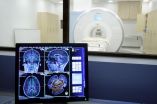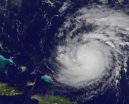INFORMATION:
About St. Michael's Hospital
St Michael's Hospital provides compassionate care to all who enter its doors. The hospital also provides outstanding medical education to future health care professionals in more than 23 academic disciplines. Critical care and trauma, heart disease, neurosurgery, diabetes, cancer care, care of the homeless and global health are among the Hospital's recognized areas of expertise. Through the Keenan Research Centre and the Li Ka Shing International Healthcare Education Centre, which make up the Li Ka Shing Knowledge Institute, research and education at St. Michael's Hospital are recognized and make an impact around the world. Founded in 1892, the hospital is fully affiliated with the University of Toronto.
Embargoed to 6:30 p.m. ET, Monday, Oct. 20, 2014, time set by journal.
Please note that Dr. Khan is in Asia with a 13-hour time difference, but he is available via phone or Skype. Other authors are available for in-person interviews in Toronto.
For more information or to interview Dr. Khan, contact:
Leslie Shepherd
Manager, Media Strategy
Communications and Public Affairs Department
St. Michael's Hospital
416-864-6094
shepherdl@smh.ca
Controlling Ebola in West Africa most effective way to decrease international risk: Paper
Every month, three Ebola-infected travellers are likely to leave West Africa
2014-10-21
(Press-News.org) TORONTO, Oct. 21, 2014--Controlling the Ebola virus outbreak at the source in West Africa is the most effective way to decrease international risk of transmission, according to a research paper published today in The Lancet.
If the epidemic persists and grows, it's likely there will be more cases of the deadly virus exported to other countries, including Canada, via air travel, said Dr. Kamran Khan, a physician and researcher at St. Michael's Hospital.
Dr. Khan, who examines global airline travel patterns to predict the spread of diseases, said that every month, three Ebola-infected travellers are likely to leave West Africa, which is experiencing a widespread outbreak of the virus—and this number would only increase as the epidemic grows.
Dr. Khan and his co-authors said it is essential that other countries, their public health agencies and hospitals be prepared. The risk of international spread would be further compounded if this epidemic were to take hold in other countries, especially those with weak public health systems.
"The international community must be mindful and be ready to support the early detection and control of cases should they be imported into resource-limited countries," Dr. Khan said.
Dr. Khan noted that of the almost 500,000 travellers who flew on commercial flights out of Guinea, Liberia or Sierra Leone in 2013, more than half were headed to destinations in five countries: Ghana (17.5 per cent, Senegal (14.4 per cent), the United Kingdom (8.7 per cent, France (7.1 per cent) and Gambia (6.8 per cent). More than 60 per cent of travellers from those countries in 2014 are expected to have final destinations in low- or lower-middle income countries.
"Given that these countries have limited medical and public health resources, they may have difficulty quickly identifying and effectively responding to imported Ebola cases, said Dr Khan.
Dr. Khan said that international travel restrictions on countries with high rates of Ebola could have economic, health and humanitarian consequences that could compromise efforts to control the outbreak.
"There is a great danger that excessive travel restrictions could disrupt supply chains of necessary food, people, medicine and equipment to help fight the epidemic and cause severe economic hardship," he said.
The 2005 International Health Regulations, signed by 196 countries, specify that steps to control the international spread of diseases should "avoid unnecessary interference with international traffic and trade."
Dr. Khan said that supporting humanitarian aid, increasing the number of health care workers, and providing logistical support and equipment would be the most effective way to prevent the international spread of Ebola from West Africa. In addition, focusing on "exit screening" travelers as they leave affected countries would be more efficient than "entry screening" as they arrive in cities around the world.
Dr. Khan said that while a number of countries, including Canada, the United States and England are implementing entry screening by far the most efficient approach is exit screening of passengers leaving the three West African countries that are affected by Ebola – as recommended by the World Health Organization.
Exit screening is a preventative measure and can be focused on three major international airports in affected countries, whereas entry screening would require far greater resources to implement. Entry screening may detract resources from other important public health activities in countries with limited public health infrastructure, he said.
ELSE PRESS RELEASES FROM THIS DATE:
Findings point to an 'off switch' for drug resistance in cancer
2014-10-21
VIDEO:
In this video, a Salk researcher explains how cancer evolves to become drug resistant.
Click here for more information.
LA JOLLA—Like a colony of bacteria or species of animals, cancer cells within a tumor must evolve to survive. A dose of chemotherapy may kill hundreds of thousands of cancer cells, for example, but a single cell with a unique mutation can survive and quickly generate a new batch of drug-resistant cells, making cancer hard to combat.
Now, scientists ...
Pharmaceuticals and the water-fish-osprey food web
2014-10-21
PENSACOLA, Fla. – Ospreys do not carry significant amounts of human pharmaceutical chemicals, despite widespread occurrence of these chemicals in water, a recent U.S. Geological Survey (USGS) and Baylor University study finds. These research findings, published by Integrated Environmental Assessment and Management is the first published study that examines the bioaccumulation of pharmaceuticals in the water-fish-osprey food web.
Pharmaceuticals have been finding their way into the environment, primarily through wastewater, urban runoff and even biosolids applied ...
Trastuzumab continues to show life for HER2-positve early stage breast cancer
2014-10-21
JACKSONVILLE, Fla. — After following breast cancer patients for an average of eight-plus years, researchers say that adding trastuzumab (Herceptin) to chemotherapy significantly improved the overall and disease-free survival of women with early stage HER2-positive breast cancer.
They found that the use of trastuzumab produced a 37 percent improvement in survival and a 40 percent reduction in risk of cancer occurrence, compared to patients treated with chemotherapy alone.
These findings, published in the Journal of Clinical Oncology, demonstrate how important ...
Mental rest and reflection boost learning, study suggests
2014-10-21
A new study, which may have implications for approaches to education, finds that brain mechanisms engaged when people allow their minds to rest and reflect on things they've learned before may boost later learning.
Scientists have already established that resting the mind, as in daydreaming, helps strengthen memories of events and retention of information. In a new twist, researchers at The University of Texas at Austin have shown that the right kind of mental rest, which strengthens and consolidates memories from recent learning tasks, helps boost future learning.
The ...
Scientists restore hearing in noise-deafened mice, pointing way to new therapies
2014-10-21
ANN ARBOR, Mich. — Scientists have restored the hearing of mice partly deafened by noise, using advanced tools to boost the production of a key protein in their ears.
By demonstrating the importance of the protein, called NT3, in maintaining communication between the ears and brain, these new findings pave the way for research in humans that could improve treatment of hearing loss caused by noise exposure and normal aging.
In a new paper in the online journal eLife, the team from the University of Michigan Medical School's Kresge Hearing Research Institute and ...
Penn researchers untangle the biological effects of blue light
2014-10-21
PHILADELPHIA – Blue light can both set the mood and set in motion important biological responses. Researchers at the University of Pennsylvania's School of Medicine and School of Arts and Sciences have teased apart the separate biological responses of the human eye to blue light, revealing an unexpected contest for control. Their work addresses the properties of melanopsin, a light-sensitive protein in the eye that establishes the rhythm of our day-night cycle and the familiar constriction of the pupil to bright light. They measured the pupil response to stimulation ...
Study suggests altering gut bacteria might mitigate lupus
2014-10-21
WASHINGTON, DC – October 20, 2014 -- Lactobacillus species, commonly seen in yogurt cultures, correlate, in the guts of mouse models, with mitigation of lupus symptoms, while Lachnospiraceae, a type of Clostridia, correlate with worsening, according to research published ahead of print in Applied and Environmental Microbiology. "Our results suggest that the same investigation shold be performed in human subjects with lupus," says principal investigator Xin Luo of Virginia Tech, Blacksburg, VA.
In the study, the investigators first showed that mouse models of lupus ...
NASA's HS3 mission continues with flights over Hurricane Gonzalo
2014-10-21
Tropical Storm Gonzalo strengthened into a hurricane on Oct. 14 when it was near Puerto Rico and provided a natural laboratory for the next phase of NASA's HS3 or Hurricane and Severe Storm Sentinel mission.
The WB-57 aircraft flew over Hurricane Gonzalo on Oct. 15 carrying two HS3 mission instruments called HIWRAP and HIRAD in addition to a new Office of Naval Research sponsored dropsonde system.
The WB-57 is a mid-wing, long-range aircraft capable of operation for extended periods of time from sea level to altitudes in excess of 60,000 feet. Two crew members are positioned ...
For prescription drug addiction treatment, buprenorphine maintenance trumps detoxification
2014-10-20
For treating patients with prescription opioid dependence in primary care, buprenorphine maintenance therapy is superior to detoxification, according to a new study by Yale School of Medicine researchers published in the Oct. 20 issue of JAMA Internal Medicine.
Prescription opioid dependence has been increasing for the last 15 years and now surpasses heroin dependence. Doctors are also writing more prescriptions for pain management, which has led to higher experimentation and addiction rates, according to lead author David Fiellin, M.D., professor of internal medicine ...
New tracers can identify frac fluids in the environment
2014-10-20
Scientists have developed new geochemical tracers that can identify hydraulic fracturing flowback fluids that have been spilled or released into the environment.
The tracers have been field-tested at a spill site in West Virginia and downstream from an oil and gas brine wastewater treatment plant in Pennsylvania.
"By characterizing the isotopic and geochemical fingerprints of enriched boron and lithium in flowback water from hydraulic fracturing, we can now track the presence of 'frac' fluids in the environment and distinguish them from wastewater coming from other ...
LAST 30 PRESS RELEASES:
Kidney cancer study finds belzutifan plus pembrolizumab post-surgery helps patients at high risk for relapse stay cancer-free longer
Alkali cation effects in electrochemical carbon dioxide reduction
Test platforms for charging wireless cars now fit on a bench
$3 million NIH grant funds national study of Medicare Advantage’s benefit expansion into social supports
Amplified Sciences achieves CAP accreditation for cutting-edge diagnostic lab
Fred Hutch announces 12 recipients of the annual Harold M. Weintraub Graduate Student Award
Native forest litter helps rebuild soil life in post-mining landscapes
Mountain soils in arid regions may emit more greenhouse gas as climate shifts, new study finds
Pairing biochar with other soil amendments could unlock stronger gains in soil health
Why do we get a skip in our step when we’re happy? Thank dopamine
UC Irvine scientists uncover cellular mechanism behind muscle repair
Platform to map living brain noninvasively takes next big step
Stress-testing the Cascadia Subduction Zone reveals variability that could impact how earthquakes spread
We may be underestimating the true carbon cost of northern wildfires
Blood test predicts which bladder cancer patients may safely skip surgery
Kennesaw State's Vijay Anand honored as National Academy of Inventors Senior Member
Recovery from whaling reveals the role of age in Humpback reproduction
Can the canny tick help prevent disease like MS and cancer?
Newcomer children show lower rates of emergency department use for non‑urgent conditions, study finds
Cognitive and neuropsychiatric function in former American football players
From trash to climate tech: rubber gloves find new life as carbon capturers materials
A step towards needed treatments for hantaviruses in new molecular map
Boys are more motivated, while girls are more compassionate?
Study identifies opposing roles for IL6 and IL6R in long-term mortality
AI accurately spots medical disorder from privacy-conscious hand images
Transient Pauli blocking for broadband ultrafast optical switching
Political polarization can spur CO2 emissions, stymie climate action
Researchers develop new strategy for improving inverted perovskite solar cells
Yes! The role of YAP and CTGF as potential therapeutic targets for preventing severe liver disease
Pancreatic cancer may begin hiding from the immune system earlier than we thought
[Press-News.org] Controlling Ebola in West Africa most effective way to decrease international risk: PaperEvery month, three Ebola-infected travellers are likely to leave West Africa







